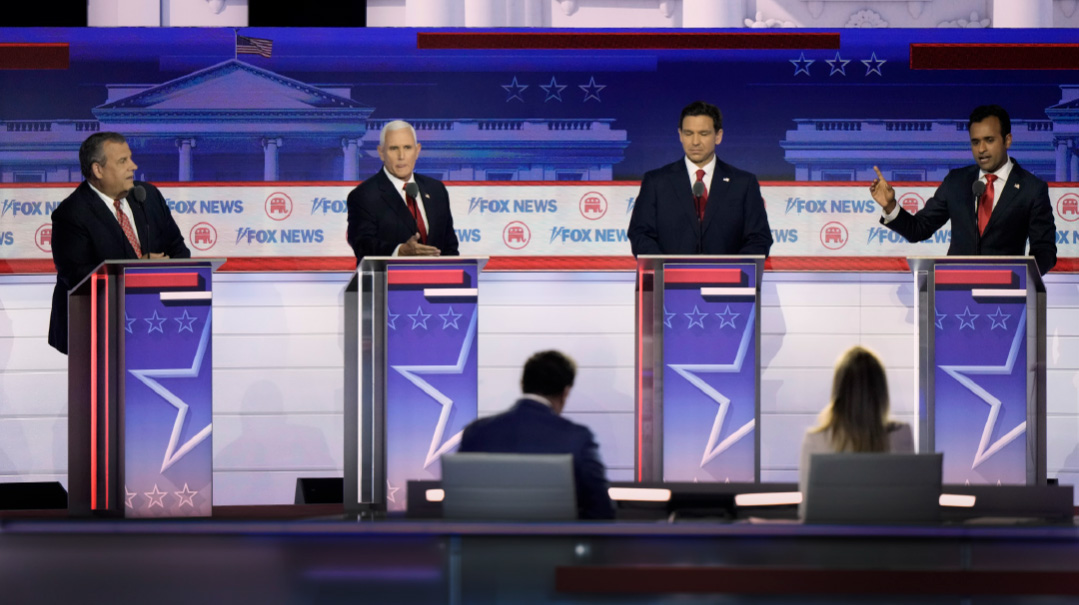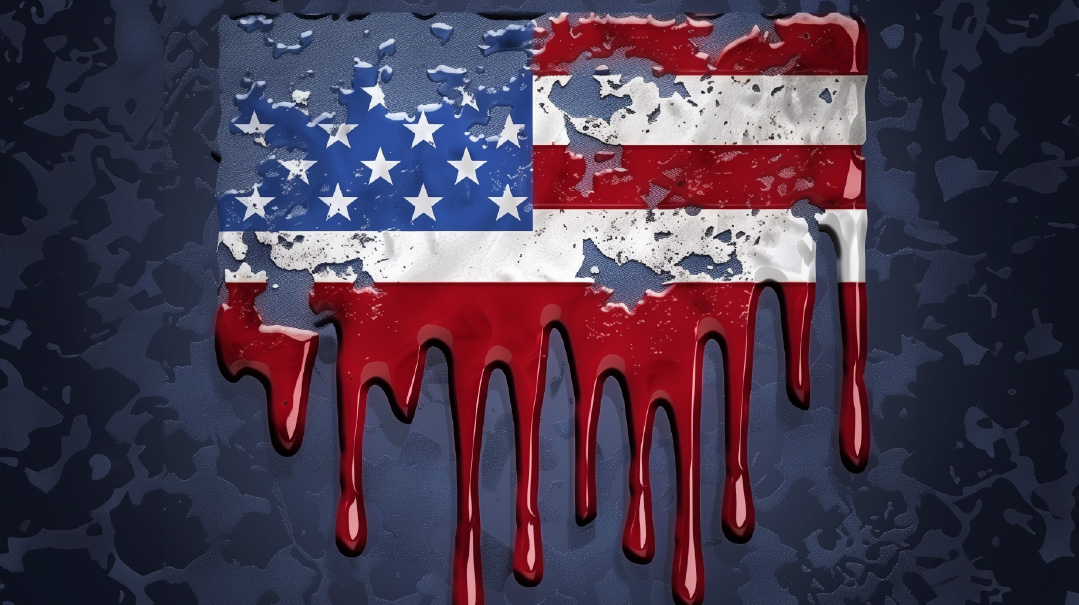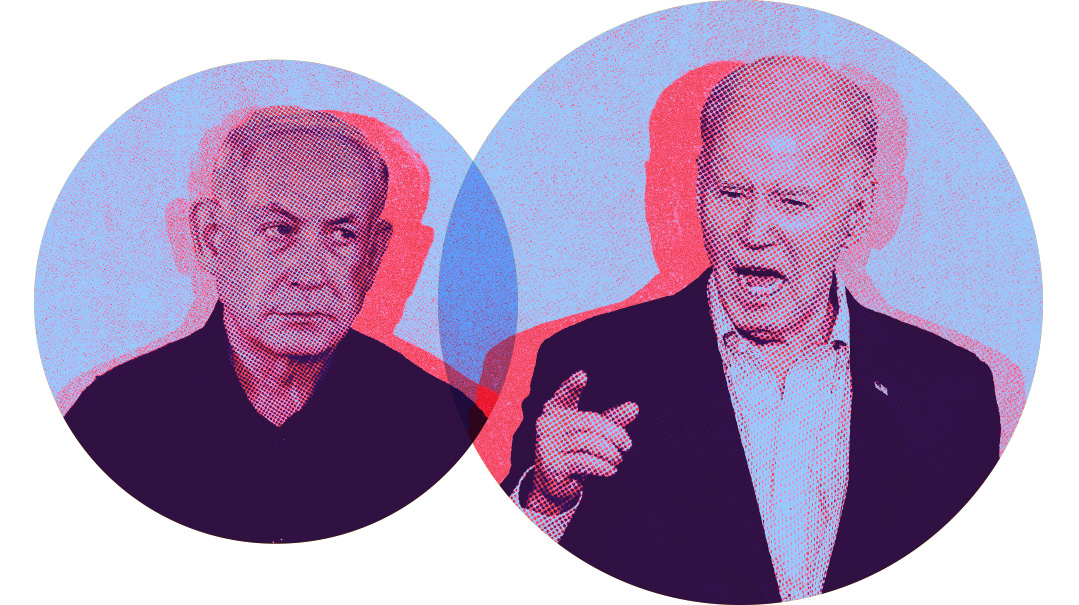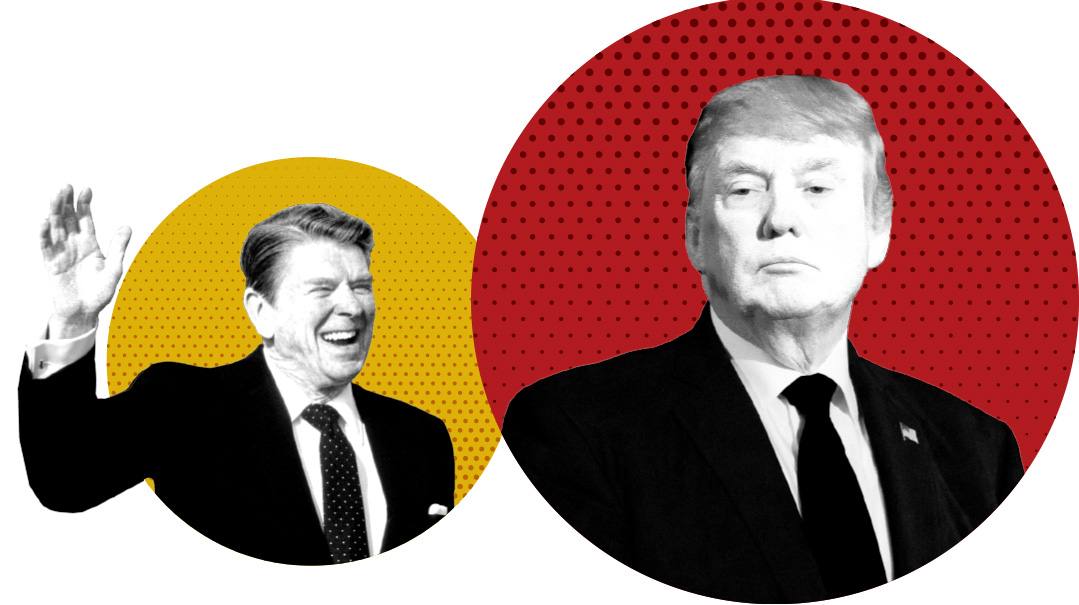Why Everyone Lost the Debate

At slugfest of debate, no winner emerged

Photo: AP Images
R
onald Reagan probably rolled over in his grave many times during the first Republican debate of the presidential nominating season.
Nicknamed the “Great Communicator,” Reagan was credited for coining the famous expression he referred to as the “11th commandment”: “Thou shalt not speak ill of a fellow Republican.”
You might have thought the eight candidates onstage in Milwaukee would have followed the script of a truly popular and effective president who won two landslide victories in 1980 and 1984. Instead, the debate quickly unraveled into an undisciplined event. Candidates tried to outshout and insult their colleagues, while some acted as if they were auditioning to be the emcee at a roast rather than running for the most prestigious office in the world.
Donald Trump might have perfected the art of using ridicule to pound his opponents into submission, but when better-mannered rivals try to emulate him, they look like they just tried on a suit tailored for someone much bigger.
There is plenty of blame to go around, with candidates who lost their cool early on under the bright, hot stage lights or who projected swagger that exceeded their accomplishments.
Mike Pence, the elder party statesman, behaved at times like the senior in the college fraternity who delights in hazing the freshmen. Projecting the insecurity of someone who trails badly in the polls, Pence treated Vivek Ramaswamy with condescension and insulted his intelligence, at one point telling him, “I’ll explain it to you, and I’ll go slower this time.”
The always pugilistic Chris Christie landed an uppercut on Ramaswamy’s chin, noting that some of his lines sounded as if they were straight out of ChatGPT.
Ramaswamy was unfazed by the attacks but enjoyed being the center of attention. While many debate reviewers and political pundits found Ramaswamy charming and confident, others found him shallow and cloying, noting how he often smirked into the cameras after expressing a point.
Doug Burgum and Asa Hutchinson showed their inexperience with their inability to make an impact, or sometimes even get in a word edgewise, and may not meet the stricter requirements the Republican Party has set to qualify for the second debate scheduled for September 27.
Ron DeSantis, Nikki Haley, and Tim Scott were the only candidates who adhered to Reagan’s 11th commandment and stuck to the issues, even when disagreeing with their competitors. But as of press time, none of them had made meaningful headway in the first polls taken after the debate.
Trump’s 40-point lead in the polls is looking more insurmountable than ever. If you’re a Republican who waxes nostalgic for Reagan, the lesson of the first debate is that this is a new era of politics, for better or for worse.
When you’re up against Trump, both the nice guys and the bad guys finish last.
Democracy on Trial
The anti-Trumpers of the world, as well as many apolitical but morally decent and honest people, wonder how a fellow like Trump, who faces four criminal trials in 2024, could become president again, or even run for public office.
It’s a subject of legitimate debate, and the Fox News moderators punted on first down. Aside from asking for a show of hands as to who would support Trump even if he were convicted, the debate itself was a dismal failure for not devoting the time to addressing this question in depth.
We tend to focus on the US and Israel, where popularly elected officials such as Trump and Binyamin Netanyahu face charges that could end their political careers and cost them their freedom, but political corruption is a global pandemic that threatens the stability of governments worldwide.
Last month, the online magazine Foreign Policy surveyed 143 countries that they categorized as “free” or “partly free,” meaning they hold some form of democratic elections. They discovered that since 2000 in 53 of these countries, at least 78 leaders have been indicted on corruption charges. Almost two-thirds of those accused were convicted, while only 12 were acquitted.
While most of the corruption is centered in South America, where bribery is a longstanding tradition, two former South Korean presidents served time before receiving pardons, while heads of state in France, Iceland, Italy, and Portugal have either been convicted or stood trial on major charges.
The World Bank describes political corruption as the abuse of public power for private benefit. How this plays out in a given country depends on the local political culture. In South Korea, large, family-run conglomerates control the economy and bribe politicians to obtain favorable treatment. In South America, military juntas have wielded the power of their guns to indict and imprison politicians who have fallen out of favor with the army.
Foreign Policy contends that indictments of politicians can be positive for democracies if they “restore democratic legitimacy and serve as a way to reckon with past injustices from dictatorial regimes.”
However, this doesn’t apply to either the US or Israel, unless you’re a dyed-in-the-wool leftist who believes that Netanyahu and Trump are right-wing extremists out to seize dictatorial powers.
Even Foreign Policy, which has a left-wing slant, concurs that “whatever happens in the United States [in the Trump trials] will likely do more to cement opinions of the country’s institutions rather than of the former president himself.”
That explains why people who voted for Trump and Bibi remain loyal to the core. Netanyahu and Trump might be the ones standing in the defendant’s dock; but the people who administer and dispense justice, and the way they do it, are as much on trial as the famous men they are prosecuting.
It’s hard to see how this ends well for either of the two democracies.
(Originally featured in Mishpacha, Issue 976)
Oops! We could not locate your form.







